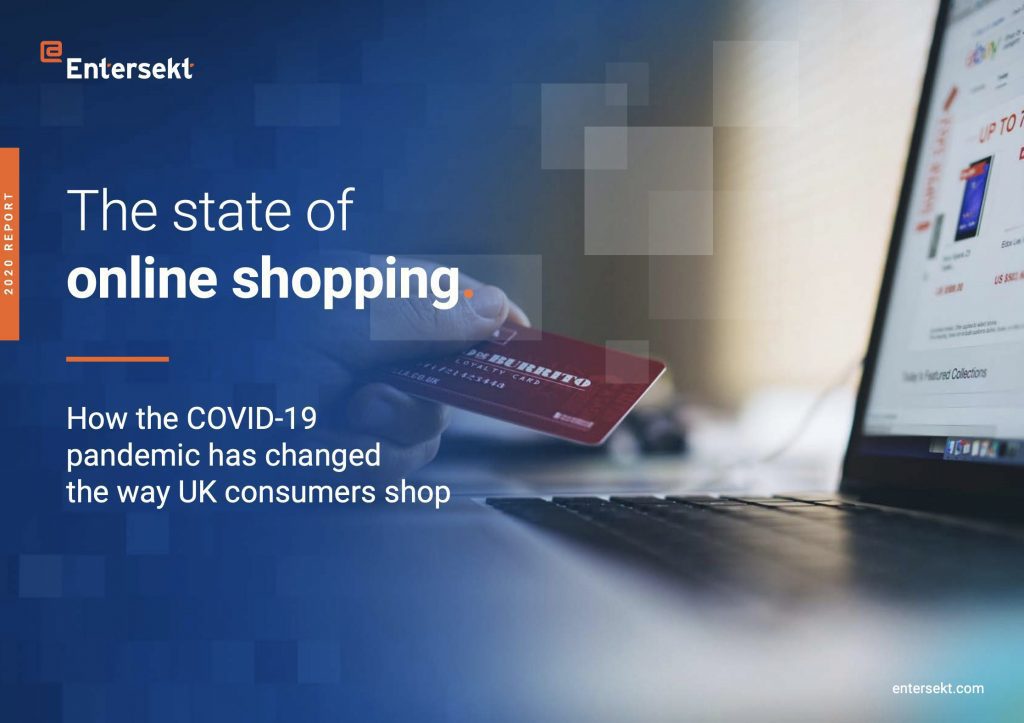
If we were to assign 2020 its very own buzzword, it’d have to be “Coronavirus”. Yes, we’re all tired of hearing it but globally the impact of the outbreak has been immense – and it’s far from over. For e-commerce and digital banking, though, there has been an undeniable silver lining: an upsurge in online activity.
With that in mind, and in a prequel of sorts to our recently published holiday fraud checklist, we wanted to find out for ourselves exactly how much the global COVID-19 pandemic had affected consumers’ shopping behavior.
So, in early November, we commissioned a poll in the populous UK and had 1,000 consumers of all ages answer a series of questions – online, of course, in the most socially distanced way possible. We wanted to know how people were shopping, to what extent they’d taken their shopping online, where they were choosing to shop and why, and what their priorities were when scouring the web for goods.
And, since we’re in the business of reducing fraud, we were especially interested in their attitudes towards e-commerce fraud and digital security, and how they felt about added (sometimes unexpected) security measures at checkout. Let’s just say, we weren’t disappointed by the results…
A major takeaway from the survey was that over a quarter of respondents claimed they were shopping less in physical stores than they were before the pandemic. Related to that, 29% said they weren’t using as much cash as before – code for an increase in digital transactions.
Sadly, criminals are quick to catch on, so the risk of e-commerce, digital banking, and payments fraud would have risen in parallel. Fortunately, when it came to the respondents’ answers about e-commerce fraud and security, all indications were that awareness had grown:
We’ve captured the full results of the survey in our newly released state of online shopping report. It provides valuable insights into the ever-changing world of consumer behavior – a must-read, especially for retailers and financial institutions looking to keep the online shopping experience safe, secure and user friendly.
The Payments Association
St Clement’s House
27 Clements Lane
London EC4N 7AE
© Copyright 2024 The Payments Association. All Rights Reserved. The Payments Association is the trading name of Emerging Payments Ventures Limited.
Emerging Ventures Limited t/a The Payments Association; Registered in England and Wales, Company Number 06672728; VAT no. 938829859; Registered office address St. Clement’s House, 27 Clements Lane, London, England, EC4N 7AE.







Log in to access complimentary passes or discounts and access exclusive content as part of your membership. An auto-login link will be sent directly to your email.
We use an auto-login link to ensure optimum security for your members hub. Simply enter your professional work e-mail address into the input area and you’ll receive a link to directly access your account.
Instead of using passwords, we e-mail you a link to log in to the site. This allows us to automatically verify you and apply member benefits based on your e-mail domain name.
Please click the button below which relates to the issue you’re having.
Sometimes our e-mails end up in spam. Make sure to check your spam folder for e-mails from The Payments Association
Most modern e-mail clients now separate e-mails into different tabs. For example, Outlook has an “Other” tab, and Gmail has tabs for different types of e-mails, such as promotional.
For security reasons the link will expire after 60 minutes. Try submitting the login form again and wait a few seconds for the e-mail to arrive.
The link will only work one time – once it’s been clicked, the link won’t log you in again. Instead, you’ll need to go back to the login screen and generate a new link.
Make sure you’re clicking the link on the most recent e-mail that’s been sent to you. We recommend deleting the e-mail once you’ve clicked the link.
Some security systems will automatically click on links in e-mails to check for phishing, malware, viruses and other malicious threats. If these have been clicked, it won’t work when you try to click on the link.
For security reasons, e-mail address changes can only be complete by your Member Engagement Manager. Please contact the team directly for further help.